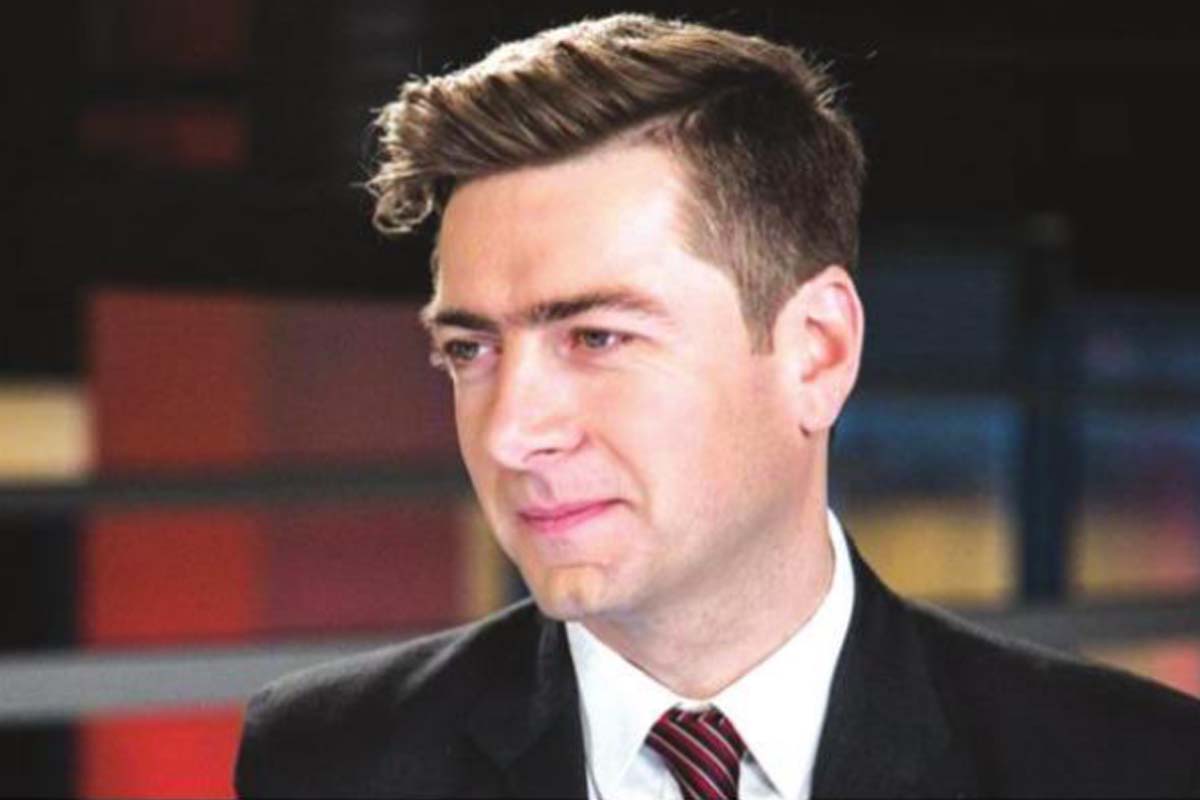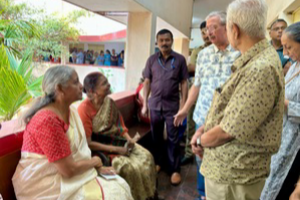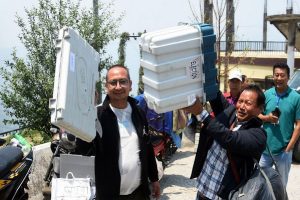Laimonas Talat-Kelpsa is the Foreign Secretary of Lithuania, a Baltic nation in Europe. Kelpsa, who speaks good Hindi, is an ace Lithuanian diplomat who was his country’s Ambassador to India from 2013 to 2018. He has held key positions in the Department of Foreign Affairs of Lithuania.
He has also served as Adviser to the Lithuanian Prime Minister and Assistant Foreign Policy Adviser to the President. Kelpsa is a winner of many awards, including the Georgian Order of Honour and Lithuanian NATO Accession Medal. Kelpsa was recently in India to meet Indian officials.
During the visit, he also released the Hindi version of the book ‘The History of Lithuania’ at a function. In an interview with ASHOK TUTEJA, he spoke on India- Lithuania ties and India’s role in global affairs.
Q: How do you look at India- Lithuania relations? What steps do you believe the two countries need to take to broaden the relationship?
A: We do have a very sound foundation for growth of bilateral relations. Our connections cross centuries. We have a linguistic connection because even today in modern Lithuanian and modern Sanskrit, we find words which sound similar. We have even produced a book on that. We have people who have been travelling from Lithuania to India and from India to Lithuania for centuries. They created a legacy which is now important for us to understand.
It is not a momentary thing which India and Lithuania are building but a relationship of historical importance. Of course, besides linguistic linkage, we have the Gandhi connection both through his idea of non-violent resistance, which was extremely important for Lithuania when it was struggling for its independence from the Soviet Union, and also because the closest friend of Mahatma Gandhi was a Lithuanian, Hermann Kallenbach.
When you read the story of this man, you will know how borderless he used to be at the end of the 19th century and the beginning of the 20th century. From this point of view when you look at the relationship of our countries, you suddenly understand that we have this immense rich history behind us and looking into the future is only very few steps.
Q: What can be done to ensure regular political contact between India and Lithuania?
A: We do have political contact and regular exchanges at the institutional level. We hope Prime Minister Narendra Modi is able to visit Lithuania to give a boost to bilateral ties. Our trade relationship also is evolving. For example, a few years ago, Lithuania was the fourth largest exporter of green peas to India.
That also is a remarkable achievement. At the people-to-people level, we see a number of students coming from India to Lithuania. When I arrived in India for the first time in 2013, we had 53 students from India and when I left in 2018, there were more than 1,000. So, I believe there should be 1,100- 1,200 students at this point of time.
Indian students are studying a whole spectrum of subjects, mainly technical, technological and also humanities which is gratifying. They prefer Lithuania owing to the quality of education and the tuition fee. Of course, the cost of living is also cheaper in our country as compared to other European countries.
Q: How do you look at India’s role in world affairs, especially in the fight against terrorism and climate change?
A: Mr M J Akbar (former Minister of State for External Affairs) had a brilliant explanation to give on the role of India. How Islamic religion is spanning across from Western Asia to the Pacific and you would see India in the middle of it.
So, you have Islam going to the west of India which is restless and Islam going on the eastern side of India which is very peaceful. India today actually serves as holding a pillar between those two understandings of Islam. If Islam fails in India, if the Muslim community in India fails, that would actually have repercussions beyond the borders of India.
This is one of the important roles for India – to be actually a moderator and a pillar of stability of interreligious or inter-cultural dialogue. Economy is another important aspect. India is becoming one among top five or top six largest economies in the world and we can also see its growth rate might surpass many of present-day leaders. So, you can’t ignore that fact.
Q: Does Lithuania support India’s candidature for a permanent seat on the United Nations Security Council, given the size of the country and its population?
A: Yes, Lithuania has expressed support for it but, of course, it has to be in the wider context of reforms in the Security Council because you cannot just separately pick up one single country and say it is now a member of the Security Council. It has to be on the basis of consensus built with member states.
Q: India has applied for membership of the Nuclear Suppliers’ Group (NSG). Lithuania is a key member of NSG. Why is India not being allowed to join this global nuclear cartel? Is China blocking India’s entry into NSG?
A: Like many international institutions, NSG also works on the basis of consensus. So, unless consensus is reached, how can you proceed? I think we determinedly have to work to build that consensus.
Q: Lithuania is also a member of the European Union (EU), one of the largest trading partners of India. India and the EU have been negotiating a Free Trade Agreement (FTA) for over a decade now but failed to strike a deal.What is the hitch?
A: That’s true and that’s again one of the sore questions both for EU and, I trust, for India. We raised this question with the Ministry of External Affairs here. The answer I bring from my meetings is that both sides have to be targeted for a result rather than nuts and bolts.
My understanding is that the result both sides are trying to achieve is still rather different. So, what we have is a mismatched target. Perhaps we have to spend more time trying to harmonise the objective.
Q: Do you think FTA will fructify when Prime Minister Modi goes to Brussels for the next India-EU Summit in the first half of 2020?
A: Let’s see…a new Commissioner of EU has just taken over. I believe that question (FTA with India) will be there again on the agenda.
Q: Lithuania can be an attractive destination for Indian tourists. However, there is very little awareness about Lithuania in India. Do you propose to organise exhibitions or roadshows in India to woo Indian tourists?
A: The Embassy of Lithuania is currently actively engaged in promoting Lithuania as a tourist destination. There is an increase in Indian tourists to European destinations and central Europe, especially Prague, Budapest and Vienna.
I think it’s only a matter of time that the target of interest travels from central Europe northwards and we are already noticing that more and more Indian tourists are showing up. The embassy, of course, is doing its job. We are a country of just three million people but our tourism sector is vibrant and last year, about three million people visited our country.
Q: Do you have Indian restaurants in Lithuania and how popular is Indian food in your country?
A: We have a number of Indian restaurants. Indian food is always popular. The reality is that Lithuanians travel a lot and spend more time abroad. They go to London, New York and other places. They spend part of their lives in those cities. When they come back to Lithuania, they already have a taste for Indian food. They also bring back to Lithuania the flavour and the taste of India.
Q: Has ‘Bollywood’ shown interest in shooting films in Lithuania?
A: They are already showing up…scout missions are already coming. A few films have been shot. (Indian actor) Irfaan Khan, for example, was recently the main star in a movie shot in Lithuania although that was a Japanese house production.










